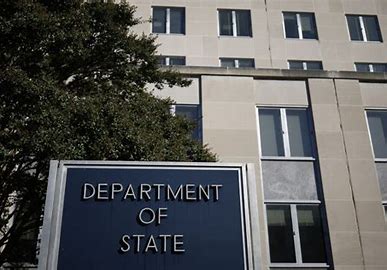
Recently, China’s Foreign Ministry strongly disapproved of the United States’ decision to revise a fact sheet on Taiwan, which removed the phrase “we do not support Taiwan independence.” The Chinese government has accused the U.S. of “gravely backpedalling” on its Taiwan position, signalling a significant shift in the United States diplomatic stance.
Taiwan’s government has welcomed the updated fact sheet, which now emphasizes a close partnership between Taiwan and the U.S. However, Taiwan’s official statement did not mention the removal of the contentious phrase. The revised document underscores the importance of peaceful resolutions without coercion, reflecting a nuanced approach to the sensitive issue of Taiwan’s status.
China’s reaction has been swift and severe. The Foreign Ministry spokesperson, Guo Jiakun, stated that the U.S. had sent a “wrong and serious signal to separatist forces advocating for Taiwan independence” and urged the U.S. to “immediately correct this mistake.” This criticism highlights the ongoing tension between China and the U.S. over Taiwan, a self-governing island that Beijing considers a breakaway province.
While Taiwan’s government has welcomed the change, there are underlying concerns about the level of U.S. support for the island compared to previous administrations. These concerns are particularly pronounced in the context of Taiwan’s semiconductor industry, a critical sector for both Taiwan and the global economy. The U.S. has been pushing for increased semiconductor manufacturing within its borders, citing Taiwan’s dominance in the industry as a strategic vulnerability.
Taiwanese President Lai Ching-te has committed to addressing these concerns by enhancing U.S. investment and procurement and strengthening Taiwan’s defence spending. The semiconductor industry, led by Taiwan Semiconductor Manufacturing Company (TSMC), remains a focal point in the U.S.-Taiwan partnership. TSMC has been making significant investments in the United States, including Arizona’s $65 billion project.
The revision of the U.S. fact sheet and the subsequent reactions from China and Taiwan underscore the delicate balance of power and diplomacy in the region. As the U.S. continues to navigate its relationship with China and Taiwan, the implications of these changes will likely reverberate through international relations and the global semiconductor supply chain.




